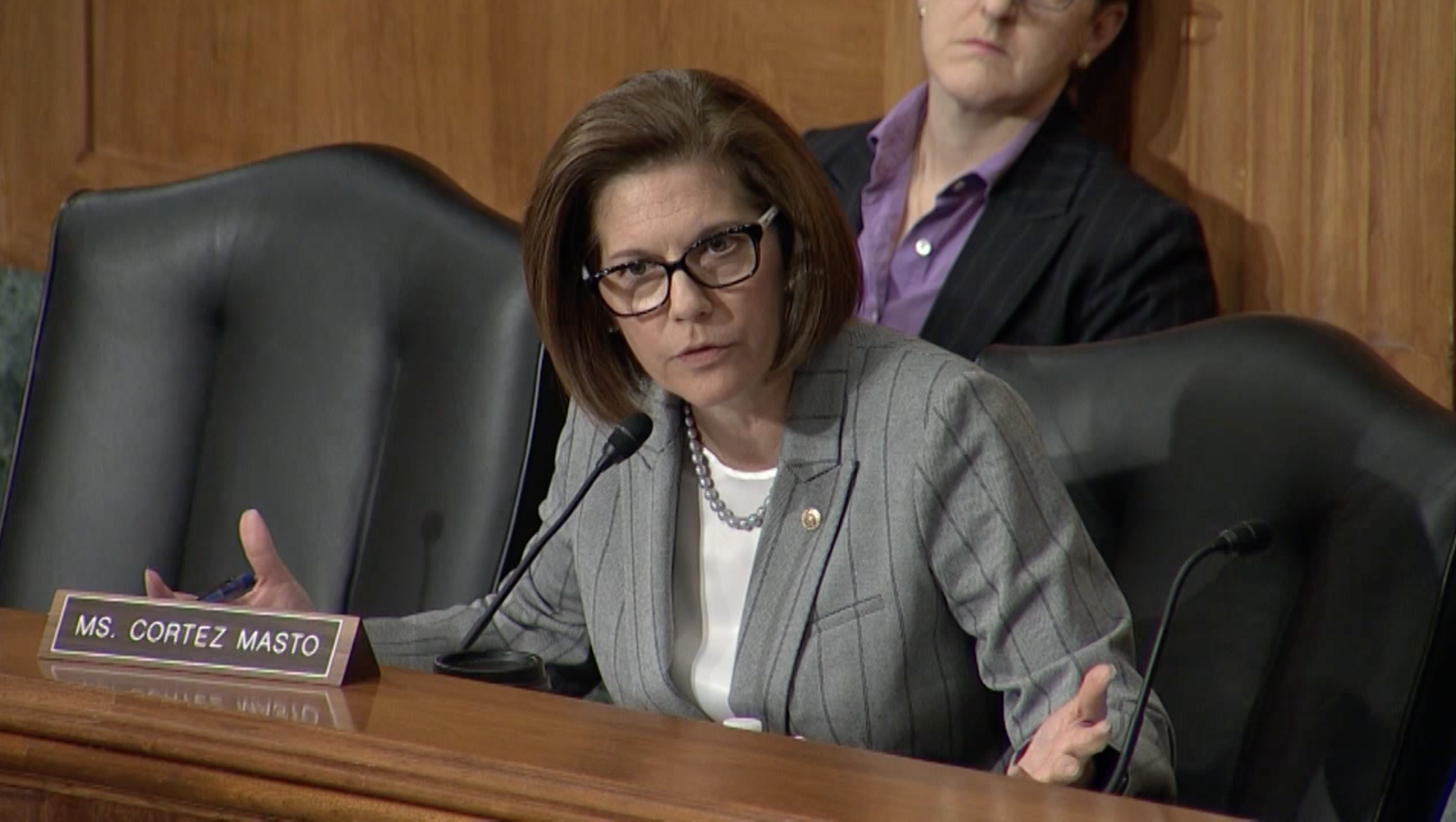
Washington, D.C. – At a Senate Banking Committee hearing yesterday, U.S. Senator Catherine Cortez Masto (D-Nev.) questioned Consumer Financial Protection Bureau (CFPB) Director Kathy Kraninger about the CFPB’s toothless and ineffectual settlement with the debt collection agency Asset Recovery Associates (ARA). Senator Cortez Masto discussed ARA’s history of deceptive and threatening tactics in attempting to collect debts. (Nevada barred ARA from operating in the state during Senator Cortez Masto’s time as Nevada Attorney General.) Senator Cortez Masto expressed her concern that the light penalties that CFPB imposes on companies like ARA allow them to continue with harmful practices.
“In 2012, I was the Attorney General in the state of Nevada. In 2012, the state of Nevada barred this debt collection [agency ARA] from operating in our state and collecting any more debts from Nevada. . . . [Y]ou just Google them, you will see the number of complaints online. . . . I mean, they are just the worst of the worst. So egregious,” the Senator explained.
She continued, “You entered in a settlement agreement with them. You were enforcing action against them, and I appreciate that. But . . . . I noticed that for purposes of restitution for consumers, the restitution amount was $36,800, and I’m curious how that how that came about. Why that amount?”
Director Kraninger explained that the settlement amount to affected consumers is determined by the number of people who complained to ARA and the CFPB.
“So you’re basing the restitution amount on the number of people that complain to you—that are even aware that you existed to complain to—along with those that may have complained to the company—and you’re taking the company’s word for it that they complained to the company, is that right?” replied the Senator. “[Y]ou’re basically letting the company determine and tell you the data, and actually identify the affected consumers and tell you who they are—instead of mandating that the company actually send a letter to every consumer that they ever touched or did business with to identify that this settlement existed and, if they had a complaint, to identify it. Not only that, you allowed the company itself to make—be the one that is the arbiter of who decides the information that is being shared. Quite honestly—what we have normally done is have independent administrators or somebody coming in, so there’s an independence to it.”
CFPB staff subsequently clarified to Senator Cortez Masto’s office that the firm did not have input into who received restitution. The clarification raises questions about Director Kraninger’s understanding of CFPB’s approach to ensuring people who are defrauded receive just compensation.
The Senator also asked how the CFPB determined that ARA should pay an additional civil penalty of $200,000 to discourage the company from continuing its deceptive practices in the future. Director Kraninger answered that “many factors get weighed in that decision, including the ability to pay of the entity.”
Senator Cortez Masto argued that how much money the company has ordinarily “has nothing to do with” the size of the settlement. She added, “I mean, clearly this is egregious, and your role is to enforce—is not only to hold them accountable in violation of existing laws, but at the same time to protect consumers and provide restitution. And not allowing the individual defendant to actually make a determination of the rules, who the affected people are, and continue the conduct without any further oversight or penalty. What they’ve basically done and what you’ve given them is the ability to say, ‘Okay, I’m just gonna wait. This cost of $200,000 as the cost of doing business, because I can make so much more and will continue down the same path.’ That’s my concern.”
She concluded, “And I think what I’m hearing today is the lack of enforcement and the lack of holding their feet to the fire and holding them accountable. They’re just going to—any business is going to say, ‘Well, this is just a cost of doing business. I’m going to incorporate it in that cost because I’m making good money. So I’ll take the lumps as they come.’ And that is a problem for purposes of enforcement. That’s my concern.”
Full video of this exchange is available here.
###